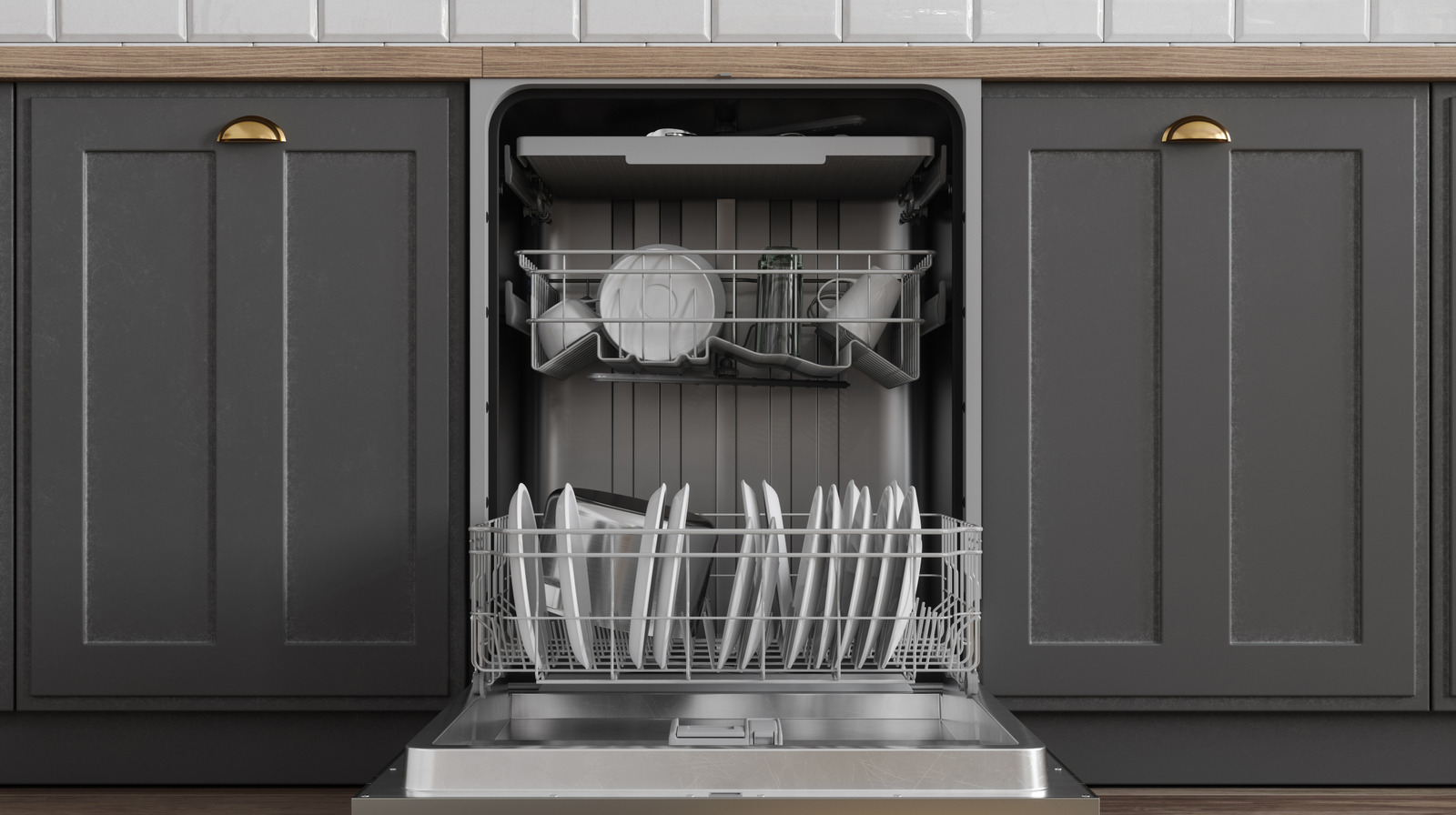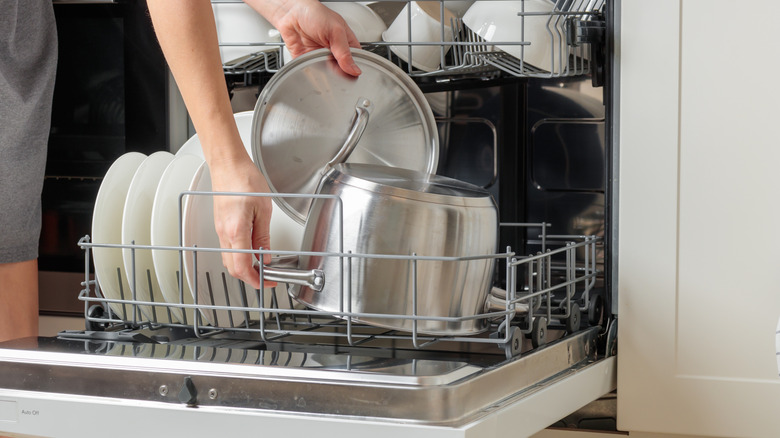The thought of purchasing new appliances for the kitchen can be absolutely overwhelming, especially in this economy. If you’re in the midst of a kitchen remodel or, for some reason, your dishwasher decided to call it quits, you don’t need to spend a whole paycheck on a new appliance (but you can, if you want to). The price will depend on size, brand, and features — and here’s how much you should expect to pay.
On average, according to This Old House, you’ll be shelling out around $800-$1,000 for a standard, medium-sized dishwasher. That said, there are dishwashers on either side of that price range, going for as low as $250 and as high as $3,500. For those on a tight budget, spending a few hundred bucks on a smaller appliance isn’t necessarily a bad thing; in fact, it might be the only option that would fit in your kitchen. For the tiniest spaces like a studio or dorm room, consider a countertop dishwasher for around $250-$399. For the best deals on appliances, consider shopping between November and December.
If you have a regular-sized kitchen and you cook for more than yourself, a medium-sized, mid-range dishwasher makes the most sense. For those who truly put their dishwasher to work, using it perhaps multiple times a day, a higher-end model is going to accommodate heavy usage better. Passionate home cooks, professional chefs, and those with a large family will benefit the most from the pricier dishwashers.
What features does a higher price point get you?
With the higher price tags, you’ll be paying for more premium features. Let’s start with material — the top-tier dishwashers typically come with a stainless steel interior, which is more durable, and resists stains and odors better than plastic. The average dishwasher comes with two racks for loading dishware and a basket for utensils. An added feature of higher-end dishwashers is often a third rack for cutlery and small items. Racks may also be adjustable or flexible to fit large or awkwardly shaped dishes easily.
Like smart fridges and washing machines, smart dishwashers also exist! These options may come with an app or some way of remotely operating the machine in order to start a load if you’re away from the house. And remember — just because you have a smart appliance, you should still try to avoid making common dishwasher mistakes (overloading it, loading utensils improperly, and so on).
If you use the dishwasher constantly, having more cycles to choose from is ideal. Special wash cycles could include options like sanitizing, gentle washes for glassware, ecomode, or heavy-duty pot scrubbing. Some modern dishwashers even have soil sensors to determine how dirty your dishes are and what cycle is needed. Prefer not to have to do a quick towel-dry once the cycle is finished? Look for more advanced built-in drying systems that provide gentle heat-drying, auto-opening doors, or a spotless drying option for wine glasses. To eliminate the loud glugging and sloshing of water, opt for quieter appliances that boast lower decibel ratings — anything under 45 decibels. Features like these can certainly be worth the cost of a higher-end dishwasher if it fits your budget.






